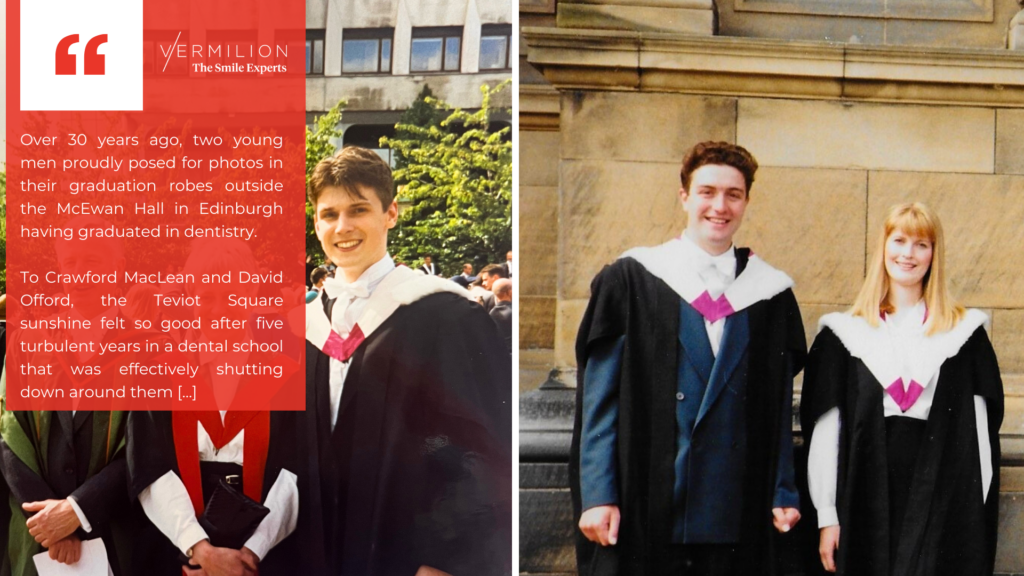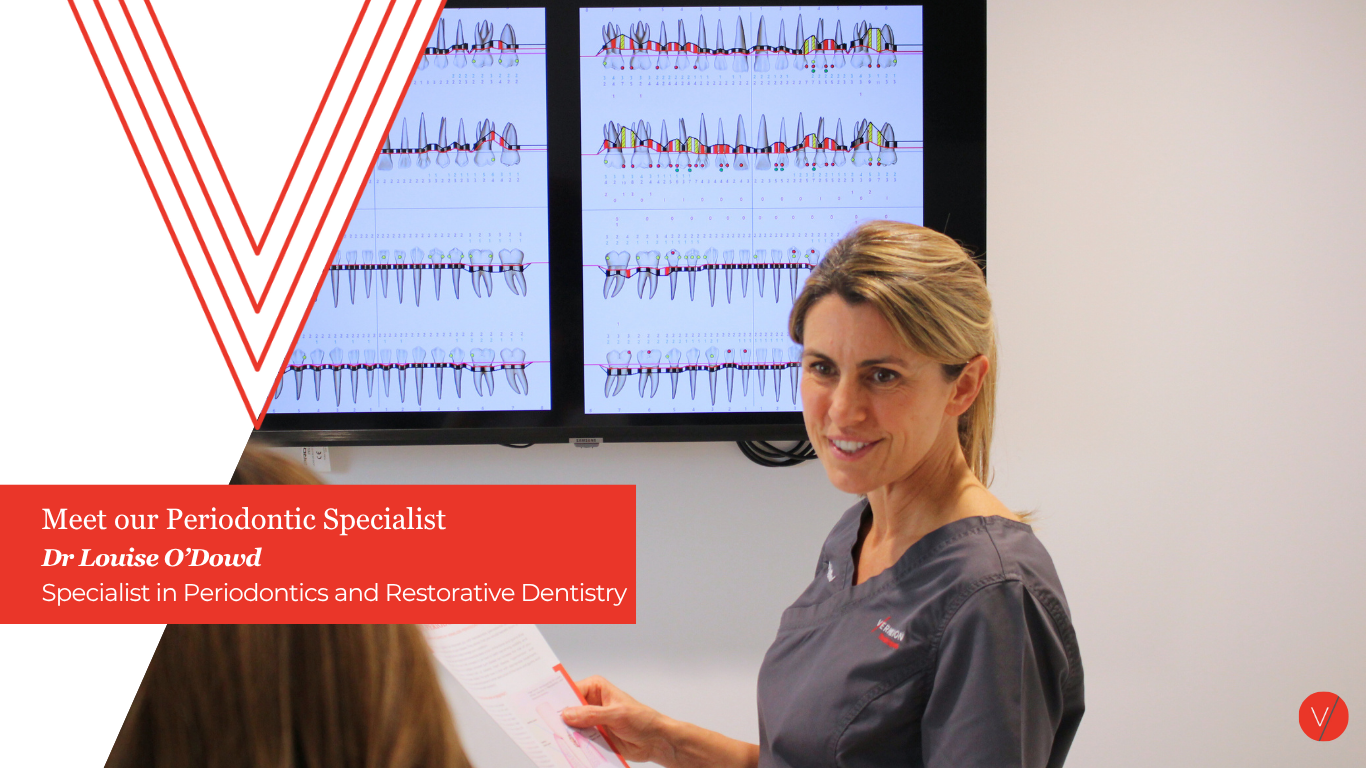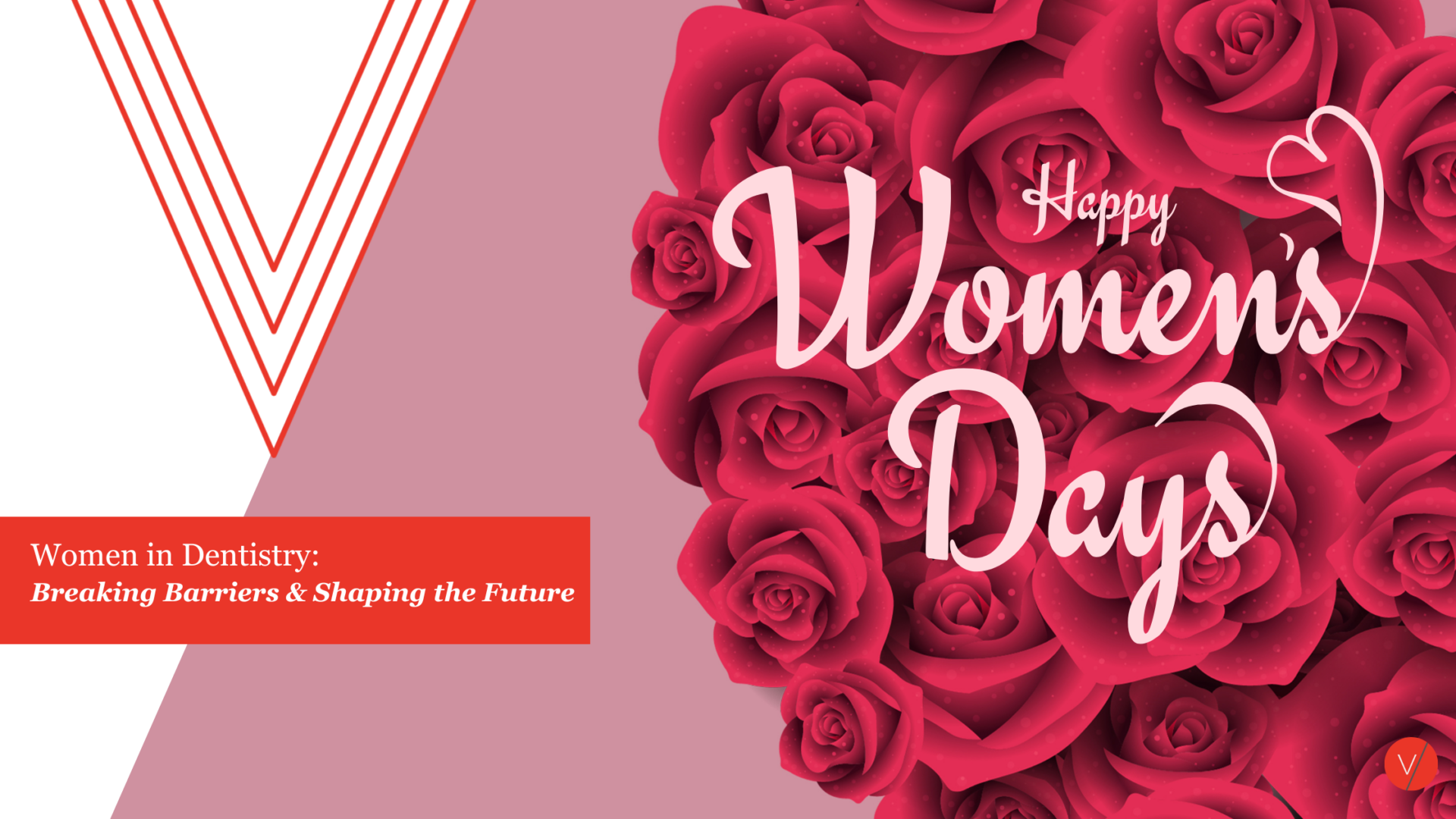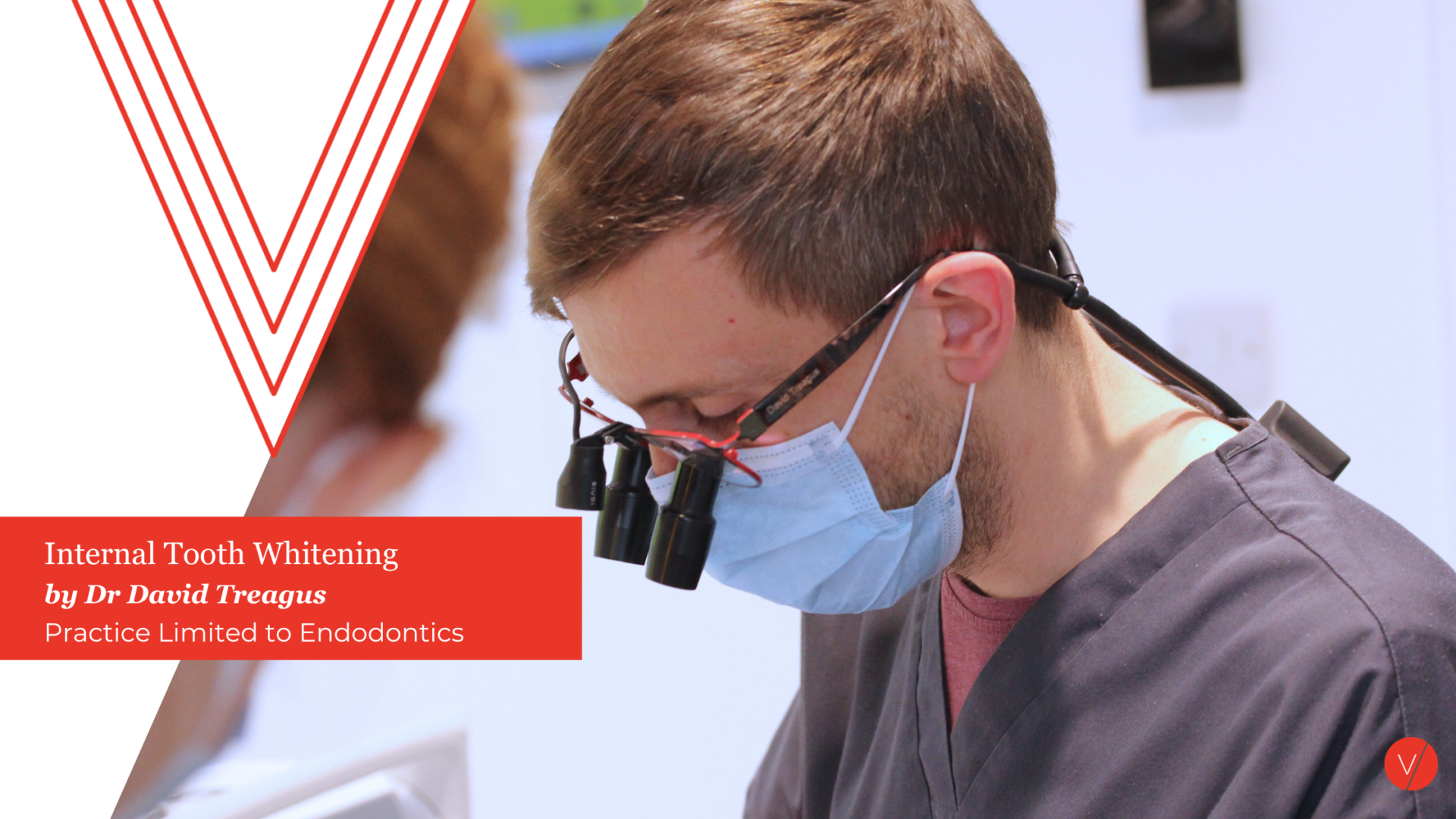Over 30 years ago, two young men proudly posed for photos in their graduation robes outside the McEwan Hall in Edinburgh having graduated in dentistry.
To Crawford MacLean and David Offord, the Teviot Square sunshine felt so good after five turbulent years in a dental school that was effectively shutting down around them. How short-sighted does the decision in 1989 to close the Edinburgh Dental Hospital and School look now with the perpetual manpower crisis in Scottish dentistry?
While contrasting, Crawford and David’s careers have taken them both on an interesting journey, with similarities along the way. Crawford MacLean is a general dental practitioner and practice principal at The Practice Dental Surgery in Grangemouth, a predominantly NHS practice. David Offord is a specialist in oral surgery and practice principal at Vermilion – The Smile Experts in Edinburgh and Kelso, a private referral-only specialist dental practice.
Both still see patients full-time, and are also husbands, fathers and business owners responsible for the livelihoods of some 70 people. This article will catch up with both men and reflect on their contrasting careers, one NHS and the other private.
Crawford Maclean
It has been 30 years! Do you still enjoy your job?
There is job satisfaction and enjoyment to be taken from dentistry under ideal working conditions. What can detract from this pleasure sometimes is the time pressure day to day and the appointment book being too busy. Personally, I would prefer to work at a steadier pace allowing me good time with each patient.
What are you most proud of when looking back over your career?
Looking after patients, mostly on the NHS, over the years for the improvement of oral health which is so important. If I can improve and maintain this from individual to individual, I feel satisfied.
Are you still committed to NHS dentistry?
At the moment, Yes.
How has NHS dentistry changed over your time?
I have worked on the old Statement of Dental Remuneration most of my life and from this point of view, very little has changed. The new Statement of Dental Remuneration is a little more prevention focused. The ‘Childsmile’ initiative in Scotland has been very good at promoting better oral health in children and I can see the results on the ground. The COVID-19 pandemic has created challenges with increased treatment needs across the population and its knock-on effect of creating waiting lists for NHS dental treatment. Our practice appointment books are booked too far ahead.
With the Scottish Government changing the Statement of Dental Remuneration in November 2023, has that made a positive or negative impact on your practice?
Early days, but this has been positive for our practice because the old Statement of Dental Remuneration was so out of date and underfunded. Time will tell if the new Statement of Dental Remuneration has any momentum or longevity to keep up with the increasing running costs of a dental practice. More generally though, the Government must become more small business focused to allow for better long-term investment leading to increased growth and employment.
What are the key challenges that your practice faces, and how can they be addressed?
For me as a business owner, the biggest issue now is the shortage of qualified dentists on the ground. I see practices with empty surgeries because they can’t recruit dentists. I see practices (people’s businesses) closing because they can’t recruit dentists. This exacerbates the problem of access to NHS dentistry tenfold.
If you had your time again, would you do it any differently?
Possibly undertake a postgraduate qualification in oral surgery shortly after graduating. One of the most important things I do not regret studying dentistry at Edinburgh University was the opportunity to meet a lovely girl in my class called Angela. You can see us both fresh faced in my graduation photo and we got married in 1995 and have 2 amazing daughters.
David Offord
It has been 30 years! Do you still enjoy your job?
I do! I still enjoy meeting patients. And I especially enjoy carrying out often complex dental implant surgery slickly and quickly with minimal disruption to patients’ lives.
What are you most proud of when looking back over your career?
My life’s work has been Vermilion, a private referral-only clinic which I launched with my wife 13 years ago. From three chairs and a team of five, we have grown to 13 chairs between Edinburgh and Kelso and a team of over 50.
At Vermilion we have no patients of our own. We are entirely dependent on dentists sending us their tricky cases. That so many dental colleagues across East Central Scotland, the Borders and Northumberland trust us with their patients is humbling, and a huge source of pride.
One thing that I am very proud of is the number of high-calibre dental nurses we have trained at Vermilion. Kids that school just passed by. Our nurses are valued dental professionals with pride in themselves and their work.
Have you always been a private dentist?
I worked in the NHS for 16 years: general dental practice, community, oral and maxillofacial jobs for many years, teaching at the EDI. I also spent a year working as a dentist in Australia and 18 months in Singapore. It wasn’t really until my late 20s that I found my calling in dentistry which was to specialise in oral surgery.
What are the advantages and disadvantages of being a private dentist?
The major advantage is autonomy. Right now, we are investing heavily in 3D printing and digitising our workflow. These are choices that we can make independently – and back ourselves to make it happen. The disadvantage of being 100% private was laid bare during COVID-19 when we had no safety net, no government support, and no capitation payments. It was a very stressful time. But where there’s a will, there’s a way. And I am very proud that by Monday 29 June 2020, we had our clinic fully up and running.
What are the key challenges that your practice faces, and how can they be addressed?
I worry about the lack of specialist training posts across the UK. We need to train more prosthodontists, endodontists, periodontics, orthodontists, and oral medics. The shortage of well-trained specialists coming out of UK dental schools is a problem when highly experienced colleagues decide to hang up their boots.
If you had your time again, would you do it any differently?
I have made my share of mistakes, but honestly, I do not regret my meandering path. I enjoy oral surgery, and I enjoy having my own business. Dentistry has been good to me and my family. I would choose it again!



